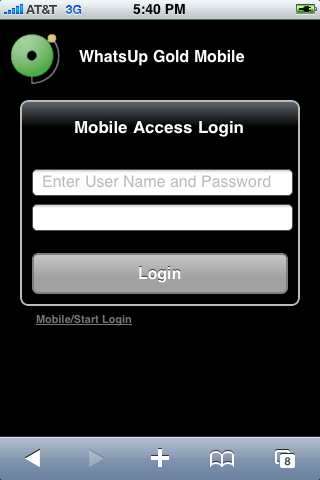

- #Cve ipswitch whatsup gold full#
- #Cve ipswitch whatsup gold software#
- #Cve ipswitch whatsup gold code#
#Cve ipswitch whatsup gold full#
There are very few limits to what an attacker can do and include giving themselves full user rights or changing user names to JavaScript to be executed when the user list is displayed. Some examples of exploitation were demonstrated that include displaying the server version and enumerating users. Unfortunately, this is a visually impaired SQL injection (PC term), but we'll allow it. This is pretty clearly open for SQL injection abuse. Looking at the WrFreeFormText.asp script, we see the UUID gets appended to an SQL query and executed. Since you are reading this advisory, you've probably figured out that this was not fully fixed! Finally, Ipswitch even tweeted that they fixed the reported vulnerabilities but did not indicate the fixed version. The CVE entry indicates that versions before 16.4 are vulnerable. Rapid7’s article indicates that Ipswitch fixed the vulnerability on December 16, 2016. CVE-2004-0799: Unspecified vulnerability in Ipswitch Whatsup Gold The HTTP daemon in Ipswitch WhatsUp Gold 8.03 and 8.03 Hotfix 1 allows remote attackers to cause a denial of service (server crash) via a GET request containing an MS-DOS device name, as demonstrated using 'prn.htm'. Regardless, a new CVE ID is being assigned to this issue in keeping with CVE abstraction policy. CERT replied saying that was how they assigned and blamed Rapid7 who they would reach out to.

We reached out to CVE to clarify this, who quickly replied that their assignments are based on CERT VU 176160, and do not consider the Rapid7 blog a definitive source. Rapid7’s blog indicates that CVE-2015-6005 covers the SQL injection, and CVE-2015-6004 covers the XSS, but that doesn’t match what is in the CVE/NVD database.
#Cve ipswitch whatsup gold code#
In no event shall Progress, its employees, or anyone else involved in the creation, production, or delivery of the code be liable for any damages whatsoever (including, without limitation, damages for loss of business profits, business interruption, loss of business information, or other pecuniary loss) arising out of the use of or inability to use the sample code, even if Progress has been advised of the possibility of such damages.This vulnerability was reported by Rapid7 and assigned CVE-2015-6004. The entire risk arising out of the use or performance of the sample code is borne by the user. Progress makes no warranties, express or implied, and disclaims all implied warranties including, without limitation, the implied warranties of merchantability or of fitness for a particular purpose. The sample code is provided on an "AS IS" basis.

#Cve ipswitch whatsup gold software#
Progress Software Corporation makes no explicit or implied claims to the validity of this information.Īny sample code provided on this site is not supported under any Progress support program or service. However, the information provided is for your information only. Progress Software Corporation makes all reasonable efforts to verify this information. The origins of the information on this site may be internal or external to Progress Software Corporation (“Progress”). Medium 192.168.100.40 HKGWUG02 tcp 443 HSTS Missing From HTTPS Server (RFC 6797) Medium 192.168.100.40 HKGWUG TLS Version 1.1 Protocol Detection Medium 192.168.100.40 HKGWUG02 tcp 443 TLS Version 1.1 Protocol Detection Medium 192.168.100.40 HKGWUG SSL Self-Signed Certificate In Progress Ipswitch WhatsUp Gold 17.0.0 through 21.1.1, and 22.0.0, it is possible for an authenticated user to invoke an API transaction that would allow them to read sensitive operating-system attributes from a host that is accessible by the WhatsUp Gold system. Medium 192.168.100.40 HKGWUG02 tcp 443 SSL Self-Signed Certificate Medium 192.168.100.40 HKGWUG SSL Certificate Cannot Be Trusted Medium 192.168.100.40 HKGWUG02 tcp 443 SSL Certificate Cannot Be Trusted Medium 192.168.100.40 HKGWUG SSL Certificate with Wrong Hostname High 192.168.100.40 HKGWUG SSL Certificate Signed Using Weak Hashing Algorithm CVE-2004-2761: The MD5 Message-Digest Algorithm is not collision-resistant, which makes it easier for context-dependent attackers to conduct spoofing attacks, as demonstrated by attacks on the use of MD5 in the signature algorithm of an X.509 certificate.


 0 kommentar(er)
0 kommentar(er)
